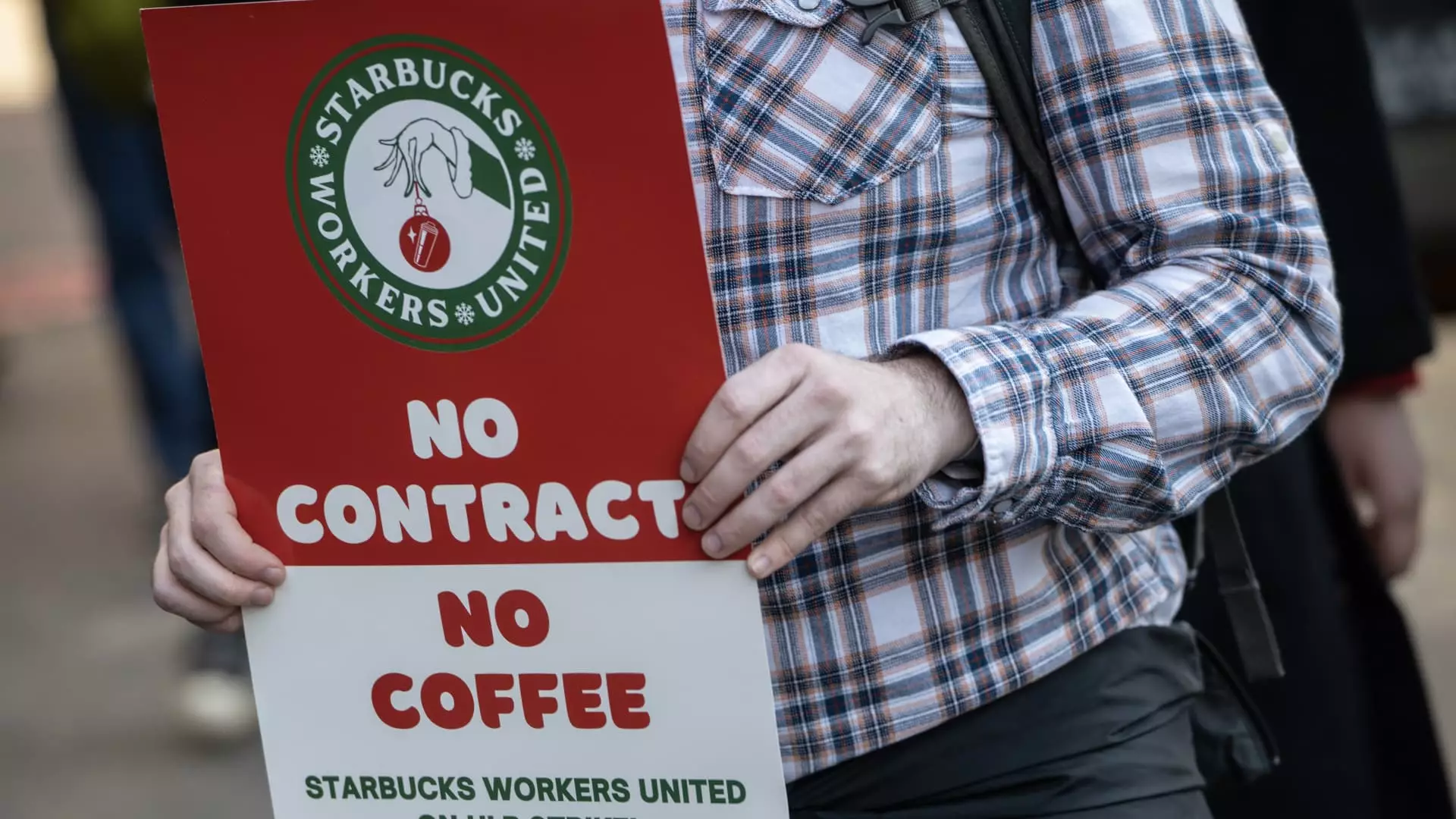As Christmas approaches, tensions between Starbucks baristas and the company are reaching a boiling point. Workers in key locations, including Los Angeles, Chicago, and Seattle, have initiated a series of strikes, which are set to escalate daily and encompass additional markets. This labor action, spearheaded by Starbucks Workers United, is primarily a response to the perceived inadequacy of pay and benefits adjustments by the corporation. The union’s announcement on social media emphasizes a feeling of betrayal, claiming that Starbucks is reneging on previously agreed-upon commitments regarding employee compensation.
Consumers visiting Starbucks over the holiday season may face extended wait times for their favorite beverages. The strikes are especially poignant during this period, as many people indulge in seasonal delights and engage in last-minute holiday shopping. The juxtaposition of festive consumerism with labor strife could impact the overall experience at Starbucks cafes, illustrating a conflict between corporate practices and employee welfare during one of the busiest times of the year.
History of Negotiations
The relationship between Starbucks and its employees has been tumultuous over the past year. In late February, both parties reached a tentative agreement on a “foundational framework” aimed at establishing a more collaborative approach to collective bargaining. However, since then, reports indicate that negotiations have stagnated, leading to frustration among baristas. With over nine meetings conducted across a 20-day span, the expectation for progress has turned into disappointment as union representatives have taken a firmer stance following the last meeting.
Starbucks Workers United is advocating for significant wage increases—asking for 64% boosts to hourly pay immediately, with a total of 77% over the duration of a proposed three-year contract. In stark contrast, Starbucks has proposed no immediate raises, offering only modest annual increases of 1.5% moving forward. In response, the company has expressed that the union’s demands are unfeasible. Statements from Starbucks highlight a broader narrative of declining sales and profitability, emphasizing that these economic factors complicate their capacity for substantial wage hikes.
Broader Context of Labor Actions
Starbucks is not alone in facing labor unrest during this critical season. Workers at Amazon facilities are also striking, spotlighting a growing movement for fair labor practices across multiple sectors. This pattern suggests a broader reevaluation of worker rights and corporate responsibilities during peak economic seasons, raising questions about how businesses prioritize employee well-being in high-stakes environments.
As the strikes progress through the holiday period, both sides will need to reevaluate their negotiating strategies. The current landscape may compel Starbucks to take more significant measures to address employee concerns if they wish to avoid backlash from consumers and maintain a positive image during the festive season. The outcomes of these strikes could set precedents for future labor relations, signaling a potentially transformative period in how big corporations navigate employee satisfaction and operational demands in an evolving economic climate.



Leave a Reply